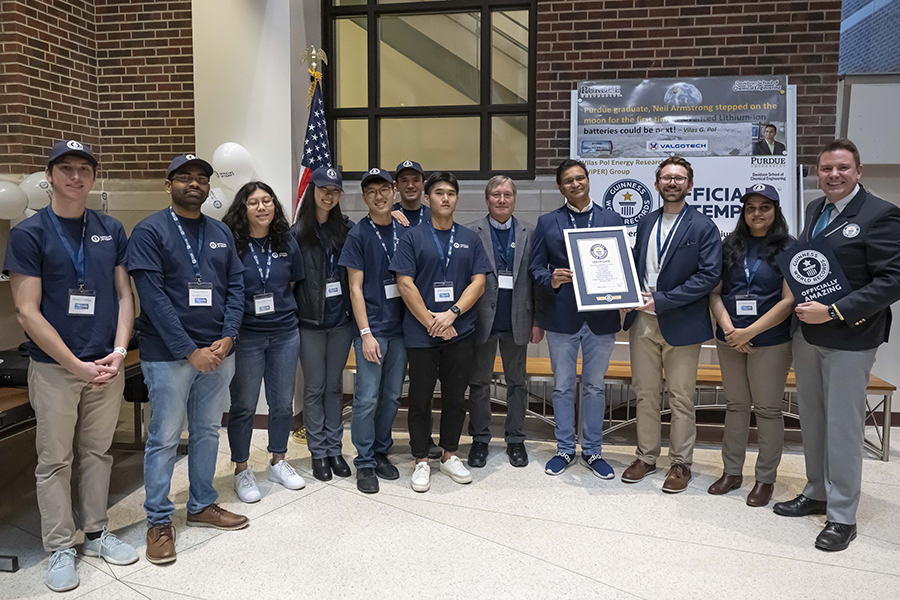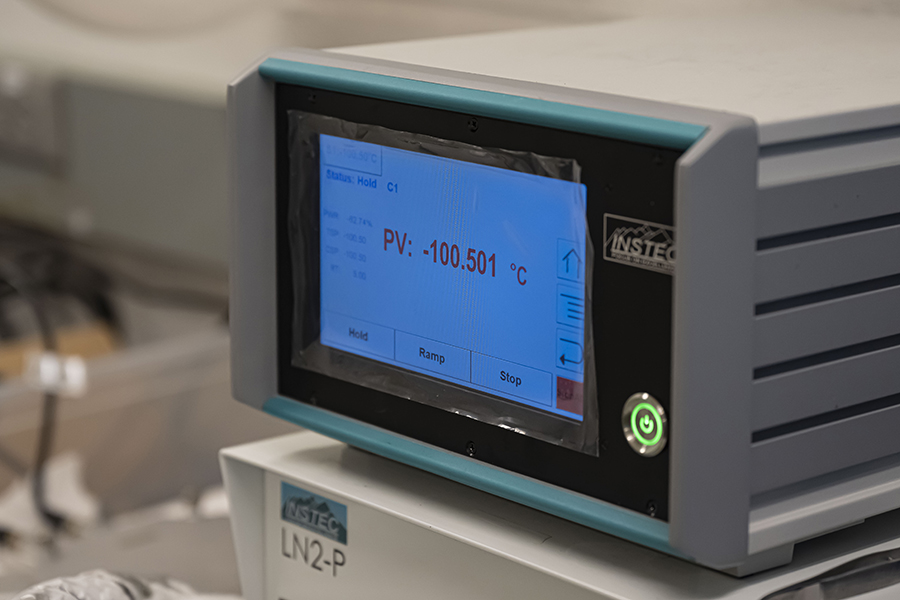Purdue's ViPER group sets GUINNESS WORLD RECORDSTM title for the lowest temperature, -100 degrees Celsius, to charge a lithium-ion battery

The Vilas Pol Energy Research (ViPER) group of the Davidson School of Chemical Engineering at Purdue University now holds the GUINNESS WORLD RECORDSTM title for the “lowest temperature to charge a lithium-ion battery (LIB).” The official attempt by the ViPER group was declared successful by a Guinness World Records judge Michael Hempric on Dec. 21 in Henson Atrium at Forney Hall, and a certificate presentation followed.
During the demonstration in ViPER’s specially designed ultralow temperature lab, multiple lithium-ion batteries were charged and discharged at a temperature of -100° C. This achievement is important because it allows researchers to simulate extremely cold-temperature environments found in lunar and space missions, high-altitude air vehicles and polar regions of Earth.
The ViPER team is composed of undergraduate and graduate students and postdoctoral researchers.
“Their role was to design an instrument with the ability to reach the extreme low temperature and develop the electrolyte that makes the battery operational without freezing the electrolyte at that ultralow temperature," Pol said. “All the credit goes to ViPER team members for such incredible research work, inventions, publications and the successful GUINNESS WORLD RECORDSTM title achievement.”
After the ceremony, the importance of the lithium-ion battery in extreme cold temperature environments analogous to the International Space Station and the lunar surface was discussed by Thomas Adams of Naval Surface Warfare Center Crane, which has collaborated with the ViPER team for last decade.
The learning experience from Pol’s energy storage systems class and the memorable research experience in the ViPER group was enthusiastically described by the former graduate student Colin Jamison, who now works at General Motors in Detroit.
The collaborative working experience with the ViPER team was further conferred by Valgotech LLC representative David Olawale. Valgotech LLC in Fishers, Indiana, is a spin off company of ViPER’s advanced lithium-sulfur batteries.
“Purdue graduate Neil Armstrong stepped on the Moon for the first time,” Pol said, "advanced lithium-ion batteries could be next."
The ViPER group continues to develop safer batteries that could work at extreme low (below -100° C) and high (above 50° C) temperatures. Pol said he is thankful to the faculty colleagues, staff, students and friends, who are the strong pillars of the success story.

